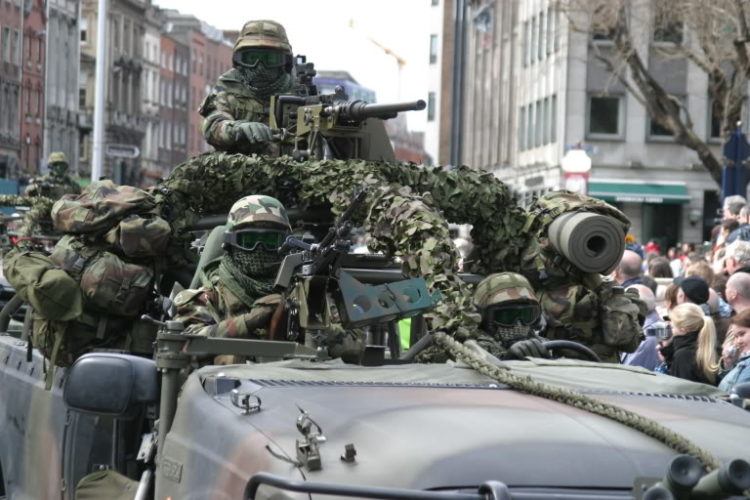The Irish Government has ordered the return of the country’s top Special Operators from Mali despite the qualms of the United Nations.
The small contingent, approximately 14 men, of the Army Ranger Wing (ARW), Ireland’s Tier 1 Special Operations unit, have been on the ground in Mali for approximately four months. Their main purpose there was to conduct counterterrorism operations and long-range reconnaissance patrols, gathering intelligence about the Islamic insurgency that is plaguing the country.
In early April, the United Nations Secretary-General had ordered the extension of the organization’s peacekeeping operations around the world in an attempt to curtail the spread of the Coronavirus. Aside from the small contingent of Special Operations troops in Mali, the Irish military has also hundreds of troops deployed in Lebanon, again, in a monitoring and peacekeeping operation.
At the time, a U.N. spokesperson had stated that “our peacekeeping missions are working full-time to contain and mitigate the spread of Covid-19. Our priorities are to ensure the Covid-19-free status of incoming uniformed personnel, and mitigate the risk that UN peacekeepers could be a contagion vector and simultaneously maintain our operational capabilities.”
The Irish Department of Defence had stated that they would ensure that the troops would rotate out as soon as possible in accordance with the U.N.’s proposed extensions.
The ARW has had a history of deployments in Africa, having participated in operations in Somalia, Liberia, and Chad. Like other Tier 1 Special Operations units, such as Delta Force and all the Commonwealth versions of the Special Air Service, the ARW is open to all members of the Irish Defence Forces.
Why is Mali and the Sahel important?
Think of it as the African version of the Domino Theory that dominated U.S. military and foreign policy in Southeast Asia during the Cold War and led to the Vietnam War. Western nations, France first and foremost, are concerned that if Mali falls to an Islamic insurgency, like it almost did back in 2012, then the fragile Sahel region will follow suit. If the whole Sahel G5 or, indeed, one or some of the countries that comprise it (Burkina Faso, Chad, Mali, Mauritania, and Niger) fall, then two outcomes are likely: First, Western nations will lose an important supply of natural resources; second, Islamic groups will have the freedom to set up training camps for Jihadists that could attack the West unhindered.
Mali is the fourth-largest producer of gold in the African continent (it used to be the third before the Islamic insurgency) in addition to producing numerous other natural mineral (for example, bauxite, diamonds, and phosphate). Next door, Niger, is France’s main supplier of uranium, a chemical element crucial for the country’s voracious nuclear appetite.
Nearby Nigeria, although not a member of the Sahel G5, is also facing its own Islamic problems with the Boko Haram terrorist group. Nigeria is one of the largest economies in Africa, competing for the top position with South Africa, and indeed in the world, currently occupying the 27th spot with an almost $400 billion Gross Domestic Product (GDP).
The Irish might be out, for the time being at least, but the French are certainly in. Their new, multinational Special Operations Task Force Takuba is expected to be operational in the upcoming months.
Already have an account? Sign In
Two ways to continue to read this article.
Subscribe
$1.99
every 4 weeks
- Unlimited access to all articles
- Support independent journalism
- Ad-free reading experience
Subscribe Now
Recurring Monthly. Cancel Anytime.











COMMENTS